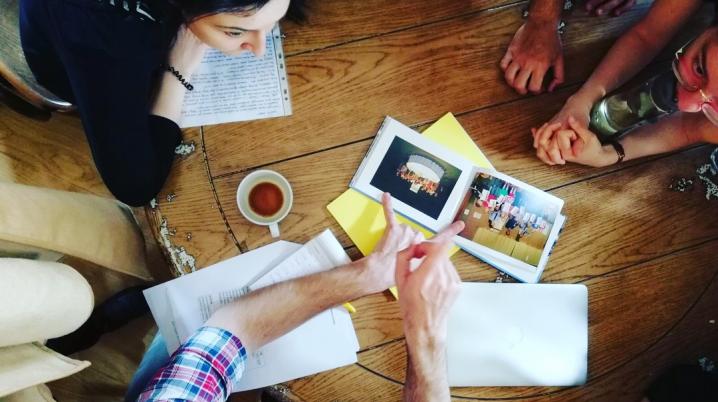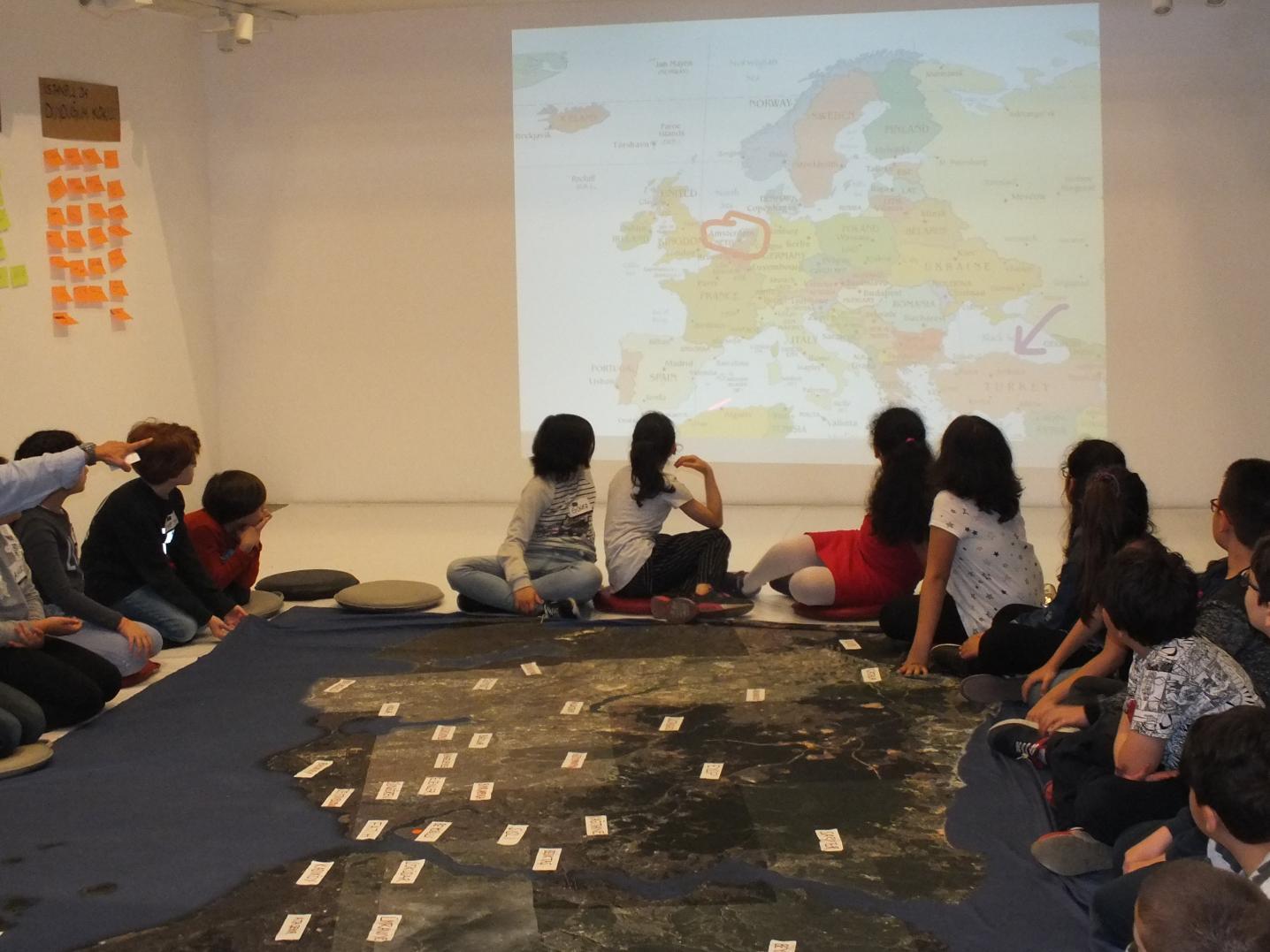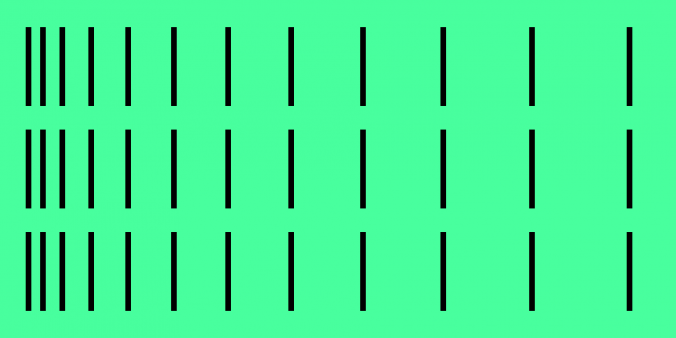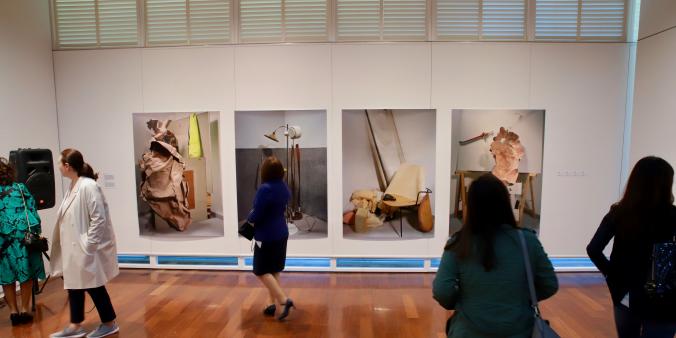
Genç Kültür in Turkey: "Looking at the role culture can play in society, addressing kids is a great place to start"
By Simon de Leeuw
Since 2017, DutchCulture has made it possible to bundle Dutch cultural activities abroad and present them in an attractive way in interdisciplinary programmes. These programmes are developed by Dutch Embassies in the focus countries of international cultural policy in collaborations with Dutch partners. This interview with Quirine van der Hoeven, cultural attaché at the Dutch Embassy in Turkey, is the second in a series of interviews with the initiators of DutchCulture programmes.
Taboos and opportunities
Van der Hoeven – mother of two young kids and residing in Istanbul – knows that cultural life in Turkey is generally not strongly focused on actively involving kids and saw that opportunities loomed. “Turkey has a very large young population, a young and eager target audience.” Dutch artists and creatives – as explored before – have a knack for creating compelling content for kids. “So there is an incredible potential. One and one makes two,” she calculates. But it’s not just about the exports: “If you look at the role that culture can play in society, addressing kids is a great place to start, building on the idea that they have the future."
In addition, an underlying sense of urgency manifests itself in a recognition of the connecting role that children’s arts and culture can play in Turkish society. Van der Hoeven clearly points towards the need for shared spaces where people can come together and share experiences in this context. “We noticed how divided Turkish society is these days. Just look at the last election results. We believe that focusing on culture can help start conversations and forge connections between people with different outlooks on life.”
Culture for kids
From Istanbul, Quirine van der Hoeven tells us about the inception of the plan: “I had those programme resources on my radar for some time, when we decided to launch this plan together with DutchCulture last year. There was a strong focus on youth in the Embassy’s and Consulate’s activities already, so this was the perfect match and a logical continuation of some processes we had already started.”
The programme ran from April until December 2018, launched by the Embassy in Ankara and the Consulate in Istanbul and DutchCulture, and supported by the Dutch Foundation for Literature, Het Nieuwe Instituut, the Netherlands Film Fund, the Performing Arts Fund NL and Creative Industries Fund NL. They jointly directed their attention towards activities that would increase the visibility of Dutch arts and culture for kids. Hence the programme’s official name; Genç Kültür. It translates as ‘kids culture’ and the aim was to broaden the horizon of Turkish children by increasing their familiarity with Dutch culture, as well as raising awareness of the fact that kids are a serious and important target audience for cultural professionals. Among the league of participating actors were: ATTA Festival, Pera Museum, Design Biennial Istanbul, Cinekid, Informel Education – Çocukistanbul, International Children’s Land Film Festival. (For a more comprehensive overview, look here.)

Forging connections
The Genç Kültür programme involved a great variety of actors from various disciplines. From gaming workshops on how to tackle plastic waste by Ellis Bartolomeus at a high school in Ankara to lessons in traditional Turkish instruments brought back to Amsterdam from Diyarbakir by the Aslan Muziekschool. “For many of the participants, including Ellis Bartolomeus, it was their first time in Turkey and they expressed great satisfaction from the new partnerships they were able to make,” van der Hoeven proudly says.
The satisfaction is apparent at the Embassy and Consulate too: “One project that I really loved was the collaboration with Cinekid,” says van der Hoeven upon asked to name her highlight of the 8-month programme. “It involved a one-day ‘train the trainer’ session in Istanbul, in which thirteen organisations - festivals and other cultural operators - learned how to implement three different Cinekid children’s workshops during their own festival or event.” Many of those festivals, such as the Marmaris Short Movie Festival, took place last year and employed the educational workshop and showed Dutch children’s movies.
Van der Hoeven is excited about the impact that a single day made on the many participating parties. “Cinekid provided them with tools to apply in their own events, and it’s great to see that knowledge being put into practice straight away. More broadly, we made sure that interested parties came from all across Turkey and that there was a way in which we could share a particular Dutch way of working; low-cost and easy to use, but very inventive.”

Rabbits on the run
Another example of a result that van der Hoeven is particularly excited about is the link-up between Dutch youth theatre group BonteHond and ATTA festival. With the help of Performing Arts Fund NL, the collaboration revolved around the production of a Turkish adaptation of the piece Gezocht: Konijn, described as a ‘miniature theatre for the very smallest.’ The piece, which features a wanted rabbit who escaped from prison, has become a big hit.
The critical potential of the play was recognized by programmers throughout the country. “I guess there is an anarchistic and rebellious element to it that resonates with kids anywhere,” van der Hoeven estimates. “It’s a vintage hide-and-seek game. The rabbits are causing mischief; the police chases them. When we saw that they did such a successful job that really struck a chord with audiences both young and old, we joined forces in order to reach Turkey in its widest sense. We brought the play to lesser-known places such as Van, Malatya, Mersin, Çanakkale and Keşan.”
Growing up
Apart from the audience focus on children, seeking out new partners and audiences in places beyond Istanbul and Ankara is another very clear objective of the Diplomatic Network in Turkey. “We aimed at reaching out to audiences that are not necessarily focused on culture, let alone Dutch cultural expressions,” says van der Hoeven. “This was an ongoing process for us too, and we have to thank the Turkish State Theatres and the Istanbul Foundation for Culture and Arts (IKSV) for opening so many doors to us and discovering new partners. Just last week we were in Eskişehir, in central Turkey. To our surprise, we learned that they had made a partnership with the ATTA festival, and Gezocht: Konijn will be performed over there in May. So apart from all the things that we were directly involved in, collaborations have started to develop independently.”
After an initial period of guided collaborations within this programme, the seeds have been sown for further future exchange. Van der Hoeven: “Even though the programme ended in December and the ‘brand’ Genç Kültür may not be there anymore, we generated a lot of attention through it, as demonstrated by the many incoming requests of partner organisations, groups, festivals and theatres to set up a project involving culture for and by kids. In that sense, it definitely proved to be a catalyst.” For many projects, the next steps are being developed and so the children’s programme’s children can slowly grow into adulthood.

Cultural attaché Quirine van der Hoeven
Find a comprehensive overview of the projects supported during the Genç Kültür programme (pdf).
Read the first article in this series of interviews with cultural attachés, with Bas Ernst in Rome. He discusses the impact of the Dutch Trail as part of art biennale Manifesta in Palermo.
Read the third article in this series of interviews with cultural attachés, with Hajin Lee on the NEDxPO2018 programme in South Korea.



